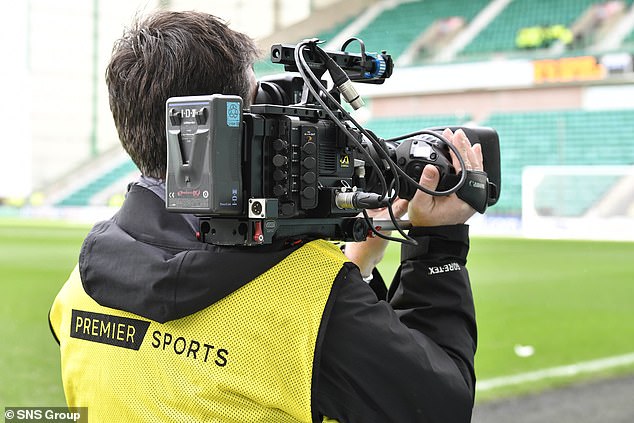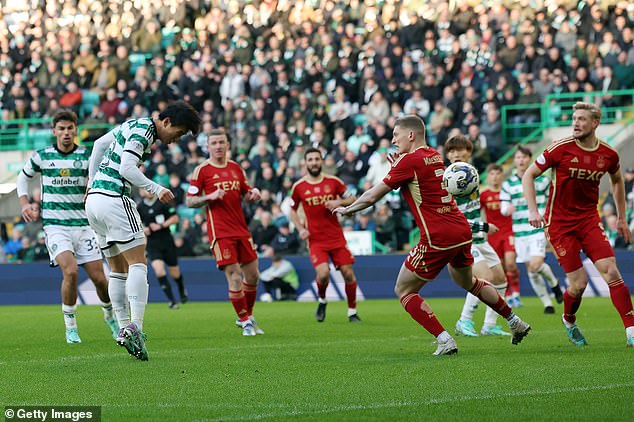THE GREAT SCREEN TEST: How does Scottish football balance the needs of fans with the need for TV cash?
Ask Celtic supporters who they dislike most and many would list their own board of directors marginally higher than traffic wardens, politicians and mainstream football writers.
The plc board are regarded as aloof men in grey suits, the decisions they make bringing little in the way of thanks or praise from their own fanbase.
Unaccustomed to rare outbreaks of popularity, the board’s call to put their season-ticket holders before the schedules of television broadcasters should perhaps have the SPFL worried.
In May, Premiership clubs were asked to vote on an agreement with subscription channel Premier Sports to sell another 20 live games per season.
Main broadcasting partners Sky already held the rights to up to 60 top-flight games. Keen to build the brand, give the game more exposure and screen a few Dundee and Edinburgh derbies, 11 of the 12 clubs agreed to flog a secondary package permitting the Irish channel to screen a maximum of two more games from each ground for £2million a season.
Clubs would receive a facilities fee of £75,000 per game - £150,000 if they were selected for two games - with the rest going into the central distribution pot.

Celtic have opted out of SPFL contract granting subscription rights to Premier Sports

Armchair fans will be denied live coverage of Celtic v Aberdeen table topper

Celtic's recent Saturday game against St Johnstone had a 5.45pm kick-off time in Perth
To those who believe that a table-topping clash is exactly the kind of game Scottish football *should* be broadcasting to the world, Celtic’s decision to banish Premier Sports from Parkhead for home league games like Aberdeen is an irritation. Further evidence of the league’s inability to keep the biggest clubs on side when it comes to collective agreements.
To Celtic diehards frustrated by football’s willingness to shunt kick-off times from pillar to post in return for broadcasting buttons, it’s an overdue example of a club putting supporters first.
With £70million in the bank, Scotland’s champions don’t exactly need the £150,000 up for grabs for shunting two games to kick-off times which would make it tricky for fans from Ireland or far flung parts of the UK to get there and back again.
The only Celtic home game to kick off at 3pm on a Saturday this season was the 2-0 win over Hearts on September 14. When Brendan Rodgers’ side appeared on Premier Sports for their only other Saturday league game this season - last week’s 6-0 thrashing of St Johnstone - the kick-off time was 5.45pm in Perth.
While the cash paid by Sky and Premier for Scottish football matters greatly, a UEFA bench-marking study in 2018 found that 43 per cent of revenue in the Scottish top flight came from gate receipts, three times the European average of 15 per cent.
In Scotland, fans buying tickets still matter - and clubs who ignore their views in the desperate quest to appease broadcasters take a significant risk.
‘It is a fine balance,’ stated Richard Haynes, professor of media sport at Stirling University. ‘Television obviously provides important commercial income and we have seen how a “product” like the Premier League in England has capitalised on a global TV audience to make it one of the wealthiest sporting leagues in the world.
‘Given Celtic’s relatively strong financial position in the context of Scottish football, however, they have clearly decided the additional revenue from Premier Sports is not worth the disruption it would cause for their season-ticket holders.
‘Other clubs in Scotland will not have the financial luxury to turn down this additional commercial income, even though it may cause further disruption to supporter travel or potentially reduce revenue at the gate.
‘I’m sure some Celtic supporters who cannot attend (in person) would prefer to see every game on television, but it is encouraging to see a club consider the disruption caused by changing the timing of games has on both home and travelling supporters.
‘At the end of the day, supporters are the main source of revenue for clubs and that should not be forgotten.’
The importance of gate receipts to clubs in the Scottish Premiership is the reason Sky Sports are restricted to a maximum of five visits to each ground. While Sky would welcome the chance to show the Celtic-Aberdeen clash, they were compelled to pick their forthcoming fixtures before Jimmy Thelin’s side stormed to 13 straight wins.
They’ve also been to Parkhead twice already this season, with another visit from Rangers pencilled in for the third. Throw in the potential for a league trophy day and just one other fixture critical to the title race and they can’t commit to an Aberdeen game of unpredictable importance in the third week of October.
The elephant in the room on this issue is Article 48 of UEFA statutes. Or, as it’s more commonly known, the 3pm Saturday black-out.
English and Scottish football has always blocked live coverage of domestic or foreign matches from television screens between the hours of 2.45pm and 5.15pm on a Saturday.
In the age of the dodgy fire stick, the impact of the blackout on attendances is debatable. Given the importance of Celtic v Aberdeen and the number of season-ticket holders, it seems unlikely that live coverage on television would have much - if any - impact on the match attendance.

Resurgence of Dons under Jimmy Thelin has made Celtic-Dons game a hot ticket
Anxious to safeguard attendances in the lower leagues and protect grassroots participation, however, the SFA remain committed to the retention of Article 48. The only way channels like Premier will be showing home games from the Scottish Premiership for the foreseeable future, then, is if games are moved to 5.30pm or a Sunday.
‘The Saturday afternoon blackout has existed since football was first broadcast on TV in the UK based on the fear that supporters would not attend matches,’ added Professor Haynes.
‘In today’s global media ecology, 3pm games from Scotland and England are shown live all over the world and because these live feeds are available we know that viewers in Scotland can access these games through alternative online sources. So the regulation of the blackout is already leaky.
‘The tipping point of whether or not the blackout ends is really financial. Will TV companies remunerate clubs enough to remove the fear of any financial loss due to reduced gates?’
‘There is also the impact on clubs lower down the pyramid, would live 3pm games on a Saturday impact on their gates? More evidence and modelling needs to be done here, and one solution is to ensure the economic wealth generated at the top of the game filters down to the grassroots to ensure the league structure remains viable.’











































































































